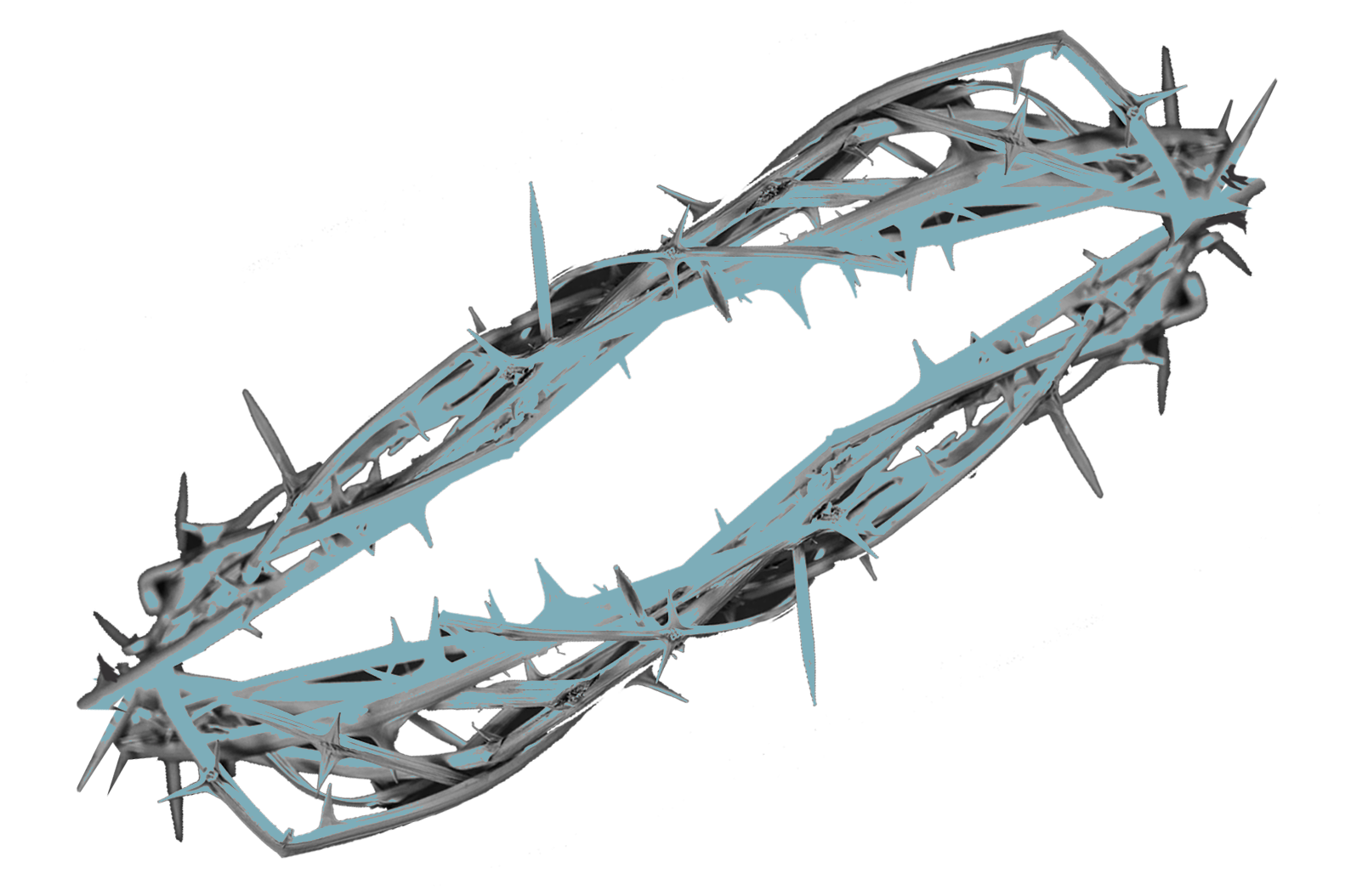It’s Easter season! As Christians, this period is meant to put a special focus on Jesus’ death on the cross and His resurrection.
However, many believers risk treating it as just another special date in the Christian calendar. We may even be tempted to find more fun in things like the Easter bunny and Easter eggs.
Are we missing the deeper meaning of Jesus’ sacrifice and its implications for us today?
So, before we celebrate Good Friday and Easter in church this weekend, I thought it was important to reflect on Jesus’ journey to the cross — particularly His pain in that process — and what that meant for the people in His time (and for us today!).
I also asked some of my brothers and sisters-in-Christ for their perspectives on how their relationship with Jesus influences their way of life.
Based on that, here are some reflections I want to share with you ahead of this Easter season.
The pain that Jesus felt
There’s thing that I can’t help but wonder about, when I consider what Jesus experienced from the time of His arrest until He was nailed onto that cross.
How on earth was He able to withstand the continuous and excruciating pain inflicted on Him?

Let’s start with the physical pain. It is important to remember just how excruciating the process of crucifixion was during the days of the Roman empire.
In fact, the very word “excruciating” comes from the Latin ex crucis, meaning “from the cross”.
Before being nailed on the cross, Jesus had to walk approximately 2.5 miles without getting any sleep, face venomous whipping that caused His body to bleed profusely, while wearing a crown of thorns that pressed into His head.
While on the cross, nails pinned His hands and feet to the wood. In that position, He would have struggled badly to breathe.
Aside from the physical pain, it is the mental anguish that Jesus must have gone through that was probably even more agonising.
This was something that was reflected at Gethsemane, where He said: “If it is possible, let this cup pass from Me.”
Furthermore, being mocked publicly by the mob and the soldiers while being unclothed must have been incredibly humiliating.
Worst of all, was the spiritual pain.
For the first time in creation, Jesus experienced the feeling of separation from His Father while hanging on the cross for the sins of the world.
That is why He cried out: “My God, my God, why have you forsaken me?”
For the first time in creation, Jesus experienced the feeling of separation from His Father…
Death by crucifixion was truly agonising and shameful.
Little wonder the Romans reserved this punishment only for the worst criminals; the great Roman statesman Cicero once said that the mere mention of it was unworthy for a Roman citizen.
Dying on the cross for humanity, Jesus went through the most unfathomable process of pain and suffering. He was truly a man of sorrows (Isaiah 53:3).
Speaking to many of my Christian friends about the nature of Christ’s death, one common reflection came up: Jesus truly gets us, including our pain.
The expectations of a messiah
While Jesus displayed the life (and the death) of a suffering servant messiah, it is worth considering how His example was quite different from the expectations that everyone in His time would have had of Him, especially the Jews.
This is where it is valuable to survey the cultural and historical context of the 1st century Middle Eastern world of the New Testament.

It was a time when the Roman Empire — the mightiest empire the world had ever seen up to that point — reigned supreme over the land that used to belong to Israel.
The Romans’ occupation of the land would have created a real sense of resentment against the rulers of the land and a deep feeling of oppression.
It was under this context that many Jews of the time would have wanted to revolt against and even overthrow Rome’s imperial authority.
Indeed, there were actual Jewish revolts against imperial authority such as the Maccabean revolt that occurred about 150 years before Jesus’ birth.
So the rulers of the day may have been motivated to crucify Jesus to nip any revolutionary sentiment in the bud.
However, Jesus’ life, and especially His journey to the cross, completely flipped the traditional expectation of a messiah on its head.
Instead of harkening an overthrow of Roman authority and re-establishing a great Jewish kingdom, Jesus willingly lays down his life (John 10:18) subjecting Himself to a violent death on a Roman cross.
Even before that, Jesus’ messages proclaimed a heavenly Kingdom that transcends all earthly empires (John 18:36), one which would come about through transformative love and self-sacrifice rather than political or cultural conquest.
The Jewish people’s political situation in the first century was very different from what we face now, but their unmet messianic expectations can parallel how we sometimes misunderstand the reason why Jesus came for us.
For example, we may falsely think that Jesus is a vessel for us to simply feel better about ourselves — or a medium through which we can pursue material, career or even romantic prospects!
Instead of trying to use God for the purpose of our own earthly desires, we should instead be sensitive of what God is calling us to do for His glory, and live to make Him known to others.
Indeed, a friend of mine shared that she believed Jesus chose her to reach out to her largely non-Christian family and friend circles.
Mirroring how Israel was chosen to be a light to the nations (Isaiah 42:6), she believes that, as Christ’s representatives on earth today, we also are to be a light to the rest of the world.
Jesus’ life and death must inform the way we live
In Jesus’ willingness to lay down His life on the cross, He exemplified gentleness, humility and a self-sacrificial love for the people around Him.
His was a life lived to comfort the hurting and heal the sick, blind and lame.
The nature of His death and His life should serve as the ultimate roadmap for how we are to live today.

So, we must remember that the Gospel is something that we must actively hold to whenever we have struggles, pain or anxieties.
The love of God is not something that is an abstract idea, but a tangible reality for us.
We know this because it was displayed through a Saviour who came in human flesh and lived a life of a lowly servant (Philippians 2).
That is why we must also show tangible love in action to those around us, including those who are hard to love.
… we must ask God to reorient our hearts and minds to see the transformative and often unexpected ways He wants to renew us and the world we inhabit.
As mentioned earlier, it is also vital to remember that we must guard against the temptation to try to frame God in accordance with our own fleshly desires.
Instead, we must ask God to reorient our hearts and minds to see the transformative and often unexpected ways He wants to renew us and the world we inhabit.
This is why Jesus eschewed the yearnings to politically topple the Roman system — which would only have created another devastating vicious cycle — but focused on overcoming darkness with a message of repentance and forgiveness.
Lastly, we must embrace the fullness of what God’s Kingdom encompasses and accept that it is starkly different from what this world has to offer.
It is a Kingdom that, at its core, was not ushered in through worldly means like material riches and conquest, but by a Saviour who offers us treasures infinitely more beautiful than that.
He offers us an eternal Kingdom, free of sin and full of God’s unblemished presence.
Even while we live in the “already, but not yet” stage of God’s redemption plan, we must strive to live with a Kingdom mindset.
It was refreshing to hear my friends share how Christ’s example has motivated them to bear more of the fruit of the Spirit and devote themselves to His Kingdom.
It is the only appropriate response to such a sacrifice, because, in the words of the hymnist Isaac Watts, “love so amazing, so divine, demands my soul, my life, my all”.
Following the way of the cross
Of course, Jesus’ earthly journey did not end with an ignominious killing on the cross.
The story concludes with His triumph over the grave and His ascension back into heaven, where He is seated next to his Father. And because of His resurrection, we are now empowered to live by the way of the cross!
On the surface, it might be puzzling why we who live in 21st century Singapore (or any other country) should base our lives on the life and death of a Jewish man in the 1st century.
However, the life that the Saviour lived is far and away the example Creation has always needed, to heal from its groans and longings (Romans 8).
Jesus is the greatest example of divine love and grace triumphing over the forces of oppression, evil and darkness, putting to shame the powers of the enemy (Colossians 2:15).
And so, in response to what Jesus did on the cross, let us follow His Kingdom wholeheartedly and follow the way of the cross — a way of radical love, grace, compassion and renewal.
- What struck you from the article? Why?
- What implications does it have on your own walk with God?
- Take a moment and thank Jesus for what He did for us on the cross.









